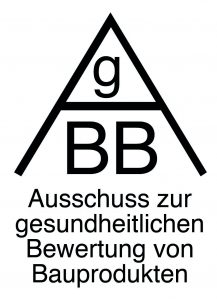August 6th, 2018, German Federal Environment Agency (Umweltbundesamt – UBA) published the updated AgBB scheme which is in connection with the principles of the German Institute for Structural Engineering (Deutsches Institut für Bautechnik – DIBt) the relevant standard for testing and health evaluation of volatile organic compounds (VVOC, VOC and SVOC) from construction products.
 AgBB
scheme 2018 is valid since its publication date; there is a transition period of one year during which the previous version, AgBB scheme 2015, may still be applied. Mixing of both versions during this period is not permitted.
AgBB
scheme 2018 is valid since its publication date; there is a transition period of one year during which the previous version, AgBB scheme 2015, may still be applied. Mixing of both versions during this period is not permitted.
What are the changes to the 2018 AgBB evaluation scheme compared to the 2015 scheme?
Significant changes have been made to the text in the 2018 AgBB evaluation scheme.
These concern in particular:
- adaptation to national building law: Model Building Regulations ( MBO ) and model administrative regulations – technical building regulations ( MVV TB )
- the reference to DIN EN 16516: 2018-01
- the sensory examination of the odour, taking into account the findings from the pilot phase and from interlaboratory tests.
MVV TB
Compliance with the national level of protection must be ensured in accordance with the specifications of the MVV TB.
TVOCspez
The verification of the emission of volatile organic compounds (VOC) takes place with reference to the detailed specifications of DIN EN 16516: 2018-01. For determination of the sum of VOCs (TVOCspez) in particular reference is made to chapter 8.2.6.1, paragraph 2 of this standard and the TVOCspez are specified as the sum of the target compounds ( LCI list) and non-target compounds (substances without LCI), unidentified and identified substances. This corresponds to the procedure described in the “principles of DIBt”.
Odour
In the new AgBB scheme the sensory testing of the odour has now been changed from “pilot phase” to recommendation “on a voluntary basis”.. If the tested product does not exceed the perceived intensity of 7 pi (perceived intensity = pi), the sensory examination is considered passed.
All changes and textual adjustments can be found in the current AgBB evaluation scheme 2018 respectivly in the changes overview. Further information on the AgBB scheme can be found here
More information on the website of the UBA can be found here
eco-INSTITUT Cologne is accredited and approved testing body and performs emission testing according to ISO 16000 and DIN EN 16516 in compliance with all national and international requirements (such as AgBB/DIBt, Blue Angel, GEV-Emicode, M1).